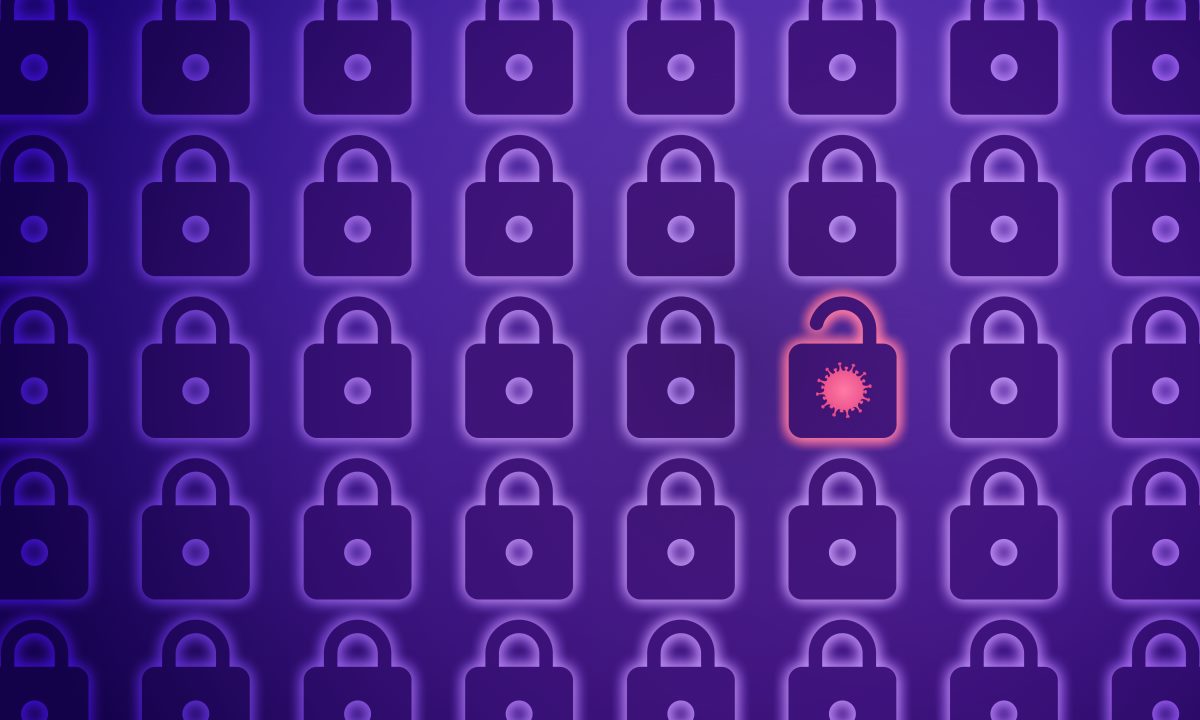
Privacy trends in the midst of the coronavirus pandemic
Sep 3, 2020The world has now been living with the covid-19 pandemic for months. With some areas reopening and others reinstating lockdowns and other restrictions, the coming months seem likely to hold continued uncertainty. The first phase of the pandemic came with a degree of uniformity: people everywhere were told to stay home. Now, the world has become a confusing patchwork of regulations and restrictions. Staged reopenings continue to be painstakingly rolled out in some jurisdictions, while in other areas guidelines seem to have been largely abandoned.
When the pandemic began, Orchid CEO Dr. Steven Waterhouse explored the areas where privacy was likely to be challenged as a result of the measures taken to counteract the virus. Now, months into the crisis, what is the state of privacy? And what areas should people remain focused on as the world continues moving forward amidst this unfolding disaster?
A patchwork of rules and restrictions
From the outset, the coronavirus threatened to greatly hamper human movement, widely regarded as a core freedom alongside speech and protest. For the moment, this has come to pass; the world today is under a confusing variety of travel restrictions that render the world a complex series of overlapping "bubbles."
In July, the European Union Council recommended that its members reopen their borders to foreign travel -- but only from select countries where new cases per capita are below a defined threshold. Citizens of all other countries are barred from entering. But each country ultimately retains control over its own borders, and individual member states have opened to these "third countries" at differing times based on each government's assessment of the risk. Moreover, countries may impose their own particular exemptions and exceptions from the rules, making uniform E.U.-wide regulations something of a mirage
Across the Atlantic, U.S. states have implemented their own dizzying patchwork of rules for internal travelers. For instance, people who fly (but not, at present, those who drive) to New York from any of 22 states must provide the state with detailed contact information and self-quarantine for 14 days. Failure to comply can result in a $2,000 fine. Other states require all incoming travelers to quarantine for 14 days, with penalties including jail time.
The Australian state of Victoria has been sealed off to inbound and outbound travel, even within the country. Meanwhile, New Zealand has declared itself virus-free and lifted all covid-related restrictions -- but almost no one is allowed to enter the country. This raises the prospect of a nation defeating the virus at the cost of remaining hermetically sealed until a vaccine is developed.
What do all these rules and restrictions say about the future of privacy? The fact is that people's freedom of movement is now more limited than at any time in living memory. And the information and quarantine requirements -- particularly for travel within countries -- adds an element of surveillance that did not exist before. For the first time, some governments are collecting detailed information on residents and visitors, and it remains to be seen whether this will end when the crisis does.
Not all the travel restrictions that were predicted have been borne out: we have not seen the emergence of so-called "immunity passports." But while experts have spoken out against the idea, it has not gone away. Some governments appear to be laying the groundwork for immunity passports, and discussion of their possible introduction continues. If recovered patients are shown to develop immunity, or if a vaccine becomes available to parts of the world population and not to others, expect this topic to quickly re-emerge.
The necessity of contact-tracing
In addition to limiting travel, governments are rolling out contact tracing systems designed to identify and isolate new cases of covid-19. Evidence suggests these efforts can help significantly limit the virus's spread and enable at least a partial return to normal activity. But there is a tradeoff: by definition, contact tracing entails an intrusion into people's personal lives. It is important to understand the nature of this intrusion in order to minimize its negative effects on privacy.

Contact tracing programs can take many forms. Some, such as that currently being rolled out in New York State, employ teams of human tracers who identify anyone who has had contact with an infected person. In South Korea, by contrast, smartphone apps have been employed for the same purpose. No matter the contours of their local situation, many people around the world face the prospect of a form of government surveillance as an everyday part of life for the foreseeable future.
Contact tracing may roll out smoothly in some places and problematically in others; the devil, as always, is in the details. And any weaknesses in tracing systems will be a temptation to those looking to defraud, blackmail, and victimize others. Already, fraudsters are exploiting contact tracing to steal sensitive information by sending fake "contact tracing" texts to people asking for bank information and other sensitive data.
More insidiously, contact tracing risks expanding governments' ability to keep tabs on their citizens. Amnesty International has called out several apps that continuously monitor people's location and share that information with central government databases -- an obvious threat to privacy. It's in response to such overreach that calls to limit public authorities' access to contact tracing data have increased due to fears over their effect on rights such as speech and assembly.
It's worth remembering that sharing personal information with the government is not a new concept, and doesn't have to weaken privacy. Most governments have their residents' addresses, dates of birth, international travel history, and physical characteristics on file in some form already. Sharing location and contact data for the purpose of managing the virus does not automatically portend a diminishment of privacy. And the development of privacy-focused, decentralized track-and-trace apps offers hope that there can be solutions that address the public health crisis without impairing other social goods.
How to maintain privacy in a track-and-trace world
Contact tracing aside, it is well established that crises can be a ratchet for government control. The instability, uncertainty, and fear they generate can open a window for governments to permanently expand their power over citizens, at the expense of civil liberties.
There are many examples of authorities using emergencies as a pretext to strengthen their power. Egypt, for example, has been living under a declared state of emergency for 48 of the last 53 years; opposition parties have been banned, elections canceled, media censored, and people jailed indefinitely without charge. There is ample evidence that this playbook is now being followed in many other countries as a result of the coronavirus, with leaders using the pandemic as a justification to claim broad executive powers and impose restrictions on political opposition. It is reasonable to wonder how far this safety-in-exchange-for-freedom pendulum may swing as we continue to move through the pandemic.
But the current crisis is also increasing scrutiny on government actions -- sometimes in the very same places where authorities are making plays to accumulate power. The surge in protest movements in North America, Asia, and elsewhere since the spring suggest that the pandemic, and the constant state of uncertainty and isolation it has produced, is destabilizing the relationships between governments and the governed.
In any case, there are steps people everywhere can take to ensure their privacy remains protected. Earlier this year we shared tips on maintaining privacy while working from home. These best practices, such as using secured wireless networks, encrypted messaging apps, and privacy tools such as VPNs, will continue to apply as the world cautiously -- and unevenly -- reopens. Just as it's important to be aware and to take precautions when we use digital networks for sensitive tasks, we must take care that in living with this virus, and doing our part to limit the spread, we are not endangering our own privacy.
Ultimately, knowledge is power. At Orchid, we have always believed that by understanding the threats and obstacles that exist for privacy, establishing good habits, and using the most effective tools, people can live their lives while minimizing the risk of being monitored, surveilled, or exploited online. We are confident that, whatever changes may come, this will remain true as the world moves into the next phase of the coronavirus era.
Download Orchid for iOS and Android today.
If you enjoyed this blog, subscribe here for privacy news, commentary, and product updates from Orchid.



